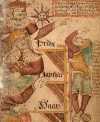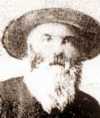 Amala and Kamala were two so-called “wolf-girls”—feral children allegedly raised by a family of wolves before being found in 1920 near Calcutta, India, at eight and 18 months old, respectively. They were taken in by the rector of a local orphanage, who documented his observations of them in a diary for almost 10 years and claimed that, like wolves, the girls were nocturnal, did not allow themselves to be dressed, and walked on all fours. What other wolfish behaviors did they allegedly display? Discuss
Amala and Kamala were two so-called “wolf-girls”—feral children allegedly raised by a family of wolves before being found in 1920 near Calcutta, India, at eight and 18 months old, respectively. They were taken in by the rector of a local orphanage, who documented his observations of them in a diary for almost 10 years and claimed that, like wolves, the girls were nocturnal, did not allow themselves to be dressed, and walked on all fours. What other wolfish behaviors did they allegedly display? Discuss
Source: The Free Dictionary
 The Ryutin Affair, one of the last attempts of the Soviet Communist Party to oppose Stalin, took place in 1932, when Martemyan Ryutin, an Old Bolshevik, decided to secretly oppose the controversial Soviet leader. In a nearly 200-page document now known as the “Ryutin Platform,” he called for Stalin’s elimination and a “fresh start,” but he was soon identified as the author, imprisoned, and ultimately executed. What happened when Stalin initially proposed the death penalty for Ryutin?
The Ryutin Affair, one of the last attempts of the Soviet Communist Party to oppose Stalin, took place in 1932, when Martemyan Ryutin, an Old Bolshevik, decided to secretly oppose the controversial Soviet leader. In a nearly 200-page document now known as the “Ryutin Platform,” he called for Stalin’s elimination and a “fresh start,” but he was soon identified as the author, imprisoned, and ultimately executed. What happened when Stalin initially proposed the death penalty for Ryutin?  The Maasai are a largely nomadic pastoral people whose territory is divided between Tanzania and Kenya. Their distinctive customs and dress and their proximity to many East African game parks have made them one of the most internationally well-known African ethnic groups. The Maasai measure wealth in terms of cattle and children, rather than money, and someone who has plenty of one but not the other is considered poor. How does killing lions factor into traditional Maasai culture?
The Maasai are a largely nomadic pastoral people whose territory is divided between Tanzania and Kenya. Their distinctive customs and dress and their proximity to many East African game parks have made them one of the most internationally well-known African ethnic groups. The Maasai measure wealth in terms of cattle and children, rather than money, and someone who has plenty of one but not the other is considered poor. How does killing lions factor into traditional Maasai culture?  Leptis Magna was a prominent city of the Roman Empire whose remains are among the most spectacular and best-preserved Roman ruins in North Africa. Located on the coast of what is now Libya, Leptis Magna was incorporated into the Roman Empire after the fall of Carthage, flourished under the rule of Emperor Septimius Severus—a Leptis Magna native—and eventually became a major trading post. What ancient artifacts found near the site were kept hidden for five years before being revealed in 2005?
Leptis Magna was a prominent city of the Roman Empire whose remains are among the most spectacular and best-preserved Roman ruins in North Africa. Located on the coast of what is now Libya, Leptis Magna was incorporated into the Roman Empire after the fall of Carthage, flourished under the rule of Emperor Septimius Severus—a Leptis Magna native—and eventually became a major trading post. What ancient artifacts found near the site were kept hidden for five years before being revealed in 2005?  The world’s oldest and most popular alcoholic beverage, beer is recorded in the written history of ancient Egypt and Mesopotamia and may have been brewed as early as the 6th millennium BCE. Today, approximately 35 billion gallons of beer are sold each year throughout the world. It is produced by fermenting sugars derived from starch-based materials, including malted barley and wheat, as well as millet in Africa, potato in Brazil, and agave in Mexico. What is the difference between ale and lager?
The world’s oldest and most popular alcoholic beverage, beer is recorded in the written history of ancient Egypt and Mesopotamia and may have been brewed as early as the 6th millennium BCE. Today, approximately 35 billion gallons of beer are sold each year throughout the world. It is produced by fermenting sugars derived from starch-based materials, including malted barley and wheat, as well as millet in Africa, potato in Brazil, and agave in Mexico. What is the difference between ale and lager?  Often seen in Norse, Anglo-Saxon, and Celtic literature, a kenning is a poetic phrase used in the place of a name or noun. Kennings can be complex phrases or simple two-word expressions joined to convey a meaning neither word possesses alone. A knowledge of mythology is often vital to the understanding and interpretation of these phrases. “Sail-road,” “bath-way,” and “whale-way” are all Old English kennings that reference the sea. What is “the flesh of the mother of the enemy of the giantess”?
Often seen in Norse, Anglo-Saxon, and Celtic literature, a kenning is a poetic phrase used in the place of a name or noun. Kennings can be complex phrases or simple two-word expressions joined to convey a meaning neither word possesses alone. A knowledge of mythology is often vital to the understanding and interpretation of these phrases. “Sail-road,” “bath-way,” and “whale-way” are all Old English kennings that reference the sea. What is “the flesh of the mother of the enemy of the giantess”?  Considered a mythic substance until recently, dry quicksand is loose sand that behaves like ordinary quicksand but contains no water and operates in a different manner. Though accounts of whole caravans being swallowed up by the substance have been discounted as folklore, researchers have demonstrated that aerating fine sand reduces its bulk density and creates a dry quicksand that could envelop an entire vehicle. How did fear of dry quicksand affect the planning of the Apollo moon missions?
Considered a mythic substance until recently, dry quicksand is loose sand that behaves like ordinary quicksand but contains no water and operates in a different manner. Though accounts of whole caravans being swallowed up by the substance have been discounted as folklore, researchers have demonstrated that aerating fine sand reduces its bulk density and creates a dry quicksand that could envelop an entire vehicle. How did fear of dry quicksand affect the planning of the Apollo moon missions?  John “Liver-Eating” Johnson was a so-called “mountain man” of the 19th-century American West. After fighting in the Mexican-American War, the hunter and trapper traveled west to Wyoming, where he became a legend. According to some accounts, Johnson’s Native American wife was killed by members of the Crow tribe in 1847. He spent the next 20 years exacting his revenge, earning his nickname by supposedly cutting out and eating the liver of each man he killed. Did he ever make peace with the Crow?
John “Liver-Eating” Johnson was a so-called “mountain man” of the 19th-century American West. After fighting in the Mexican-American War, the hunter and trapper traveled west to Wyoming, where he became a legend. According to some accounts, Johnson’s Native American wife was killed by members of the Crow tribe in 1847. He spent the next 20 years exacting his revenge, earning his nickname by supposedly cutting out and eating the liver of each man he killed. Did he ever make peace with the Crow?  Trout tickling is the practice of rubbing the underbelly of a trout in order to put it in a trance-like state that makes it easier to catch by hand. Commonly used in times of economic stress, especially during the 1930s depression era, the technique has been featured in works of literature throughout history—including writings by 3rd century Greek writer Aelian, Shakespeare, and Mark Twain, who described catching catfish in a similar way. In what country is the practice essentially outlawed?
Trout tickling is the practice of rubbing the underbelly of a trout in order to put it in a trance-like state that makes it easier to catch by hand. Commonly used in times of economic stress, especially during the 1930s depression era, the technique has been featured in works of literature throughout history—including writings by 3rd century Greek writer Aelian, Shakespeare, and Mark Twain, who described catching catfish in a similar way. In what country is the practice essentially outlawed?  Muscadine, a grapevine species native to the southeastern US, has been used in the production of port and fine wines since the 16th century. Recent reports regarding the relatively high antioxidant content of muscadine wines have boosted their popularity. In fact, these wines were found to contain more than five times the amount of the life-prolonging compound resveratrol than ordinary red wines. Why do muscadine plants produce these antioxidants?
Muscadine, a grapevine species native to the southeastern US, has been used in the production of port and fine wines since the 16th century. Recent reports regarding the relatively high antioxidant content of muscadine wines have boosted their popularity. In fact, these wines were found to contain more than five times the amount of the life-prolonging compound resveratrol than ordinary red wines. Why do muscadine plants produce these antioxidants?